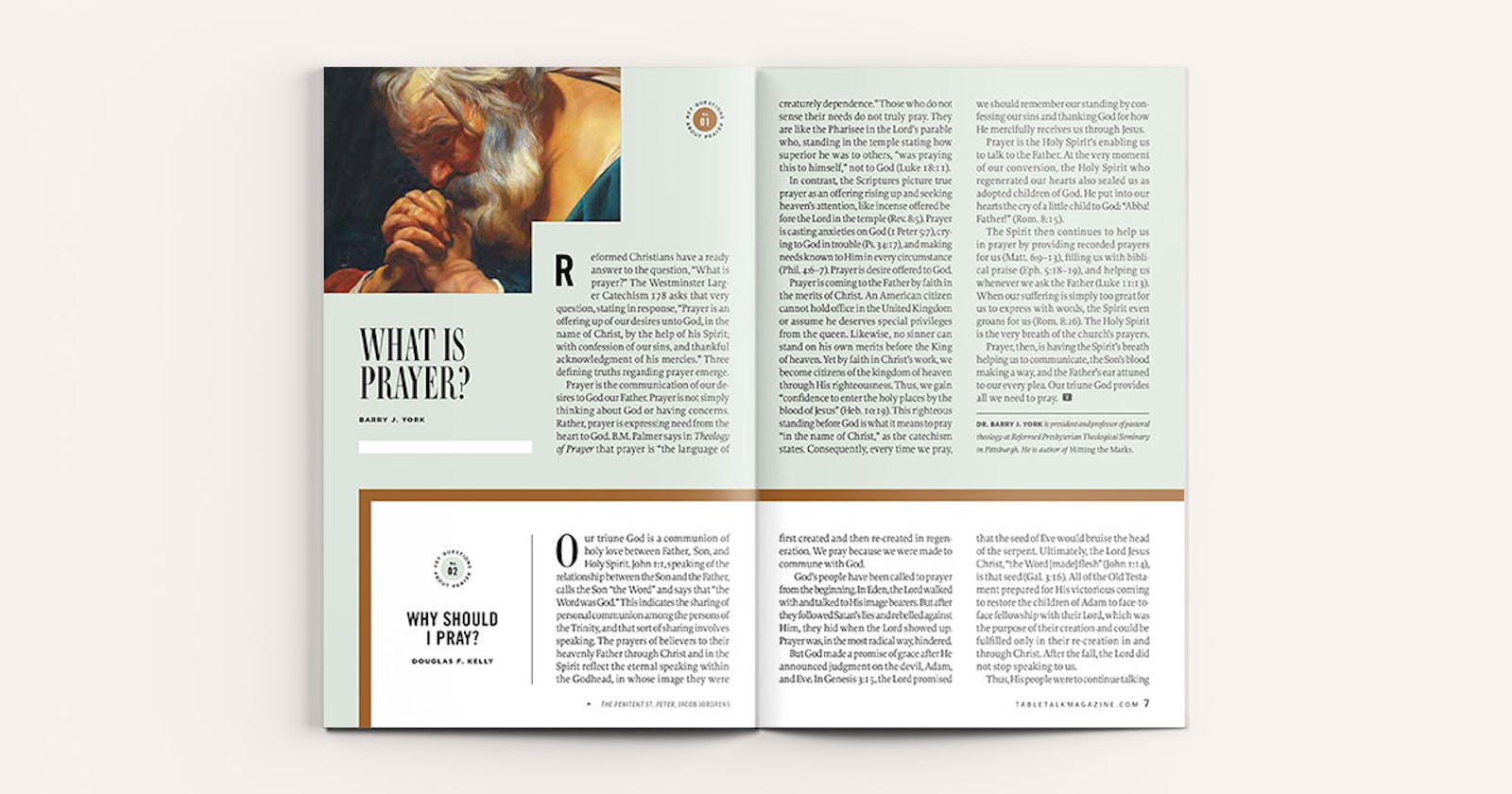
Request your free, three-month trial to Tabletalk magazine. You’ll receive the print issue monthly and gain immediate digital access to decades of archives. This trial is risk-free. No credit card required.
Try Tabletalk NowAlready receive Tabletalk magazine every month?
Verify your email address to gain unlimited access.
Reformed Christians have a ready answer to the question, “What is prayer?” The Westminster Larger Catechism 178 asks that very question, stating in response, “Prayer is an offering up of our desires unto God, in the name of Christ, by the help of his Spirit; with confession of our sins, and thankful acknowledgment of his mercies.” Three defining truths regarding prayer emerge.
Prayer is the communication of our desires to God our Father. Prayer is not simply thinking about God or having concerns. Rather, prayer is expressing need from the heart to God. B.M. Palmer says in Theology of Prayer that prayer is “the language of creaturely dependence.” Those who do not sense their needs do not truly pray. They are like the Pharisee in the Lord’s parable who, standing in the temple stating how superior he was to others, “was praying this to himself,” not to God (Luke 18:11).
In contrast, the Scriptures picture true prayer as an offering rising up and seeking heaven’s attention, like incense offered before the Lord in the temple (Rev. 8:5). Prayer is casting anxieties on God (1 Peter 5:7), crying to God in trouble (Ps. 34:17), and making needs known to Him in every circumstance (Phil. 4:6–7). Prayer is desire offered to God.

Prayer is coming to the Father by faith in the merits of Christ. An American citizen cannot hold office in the United Kingdom or assume he deserves special privileges from the queen. Likewise, no sinner can stand on his own merits before the King of heaven. Yet by faith in Christ’s work, we become citizens of the kingdom of heaven through His righteousness. Thus, we gain “confidence to enter the holy places by the blood of Jesus” (Heb. 10:19). This righteous standing before God is what it means to pray “in the name of Christ,” as the catechism states. Consequently, every time we pray, we should remember our standing by confessing our sins and thanking God for how He mercifully receives us through Jesus.
Prayer is the Holy Spirit’s enabling us to talk to the Father. At the very moment of our conversion, the Holy Spirit who regenerated our hearts also sealed us as adopted children of God. He put into our hearts the cry of a little child to God: “Abba! Father!” (Rom. 8:15).
The Spirit then continues to help us in prayer by providing recorded prayers for us (Matt. 6:9–13), filling us with biblical praise (Eph. 5:18–19), and helping us whenever we ask the Father (Luke 11:13). When our suffering is simply too great for us to express with words, the Spirit even groans for us (Rom. 8:26). The Holy Spirit is the very breath of the church’s prayers.
Prayer, then, is having the Spirit’s breath helping us to communicate, the Son’s blood making a way, and the Father’s ear attuned to our every plea. Our triune God provides all we need to pray.
